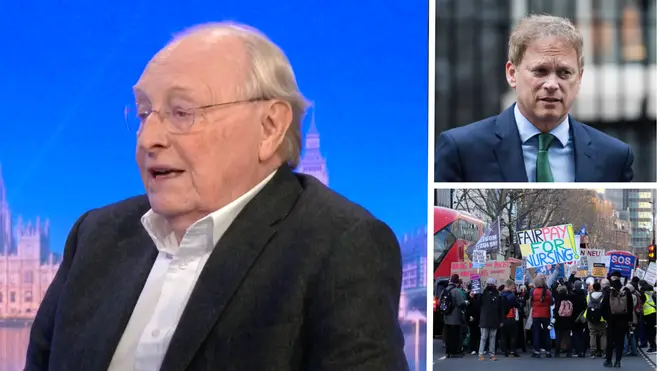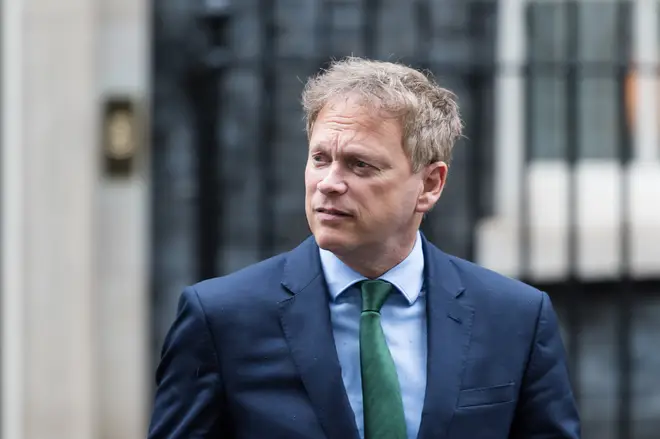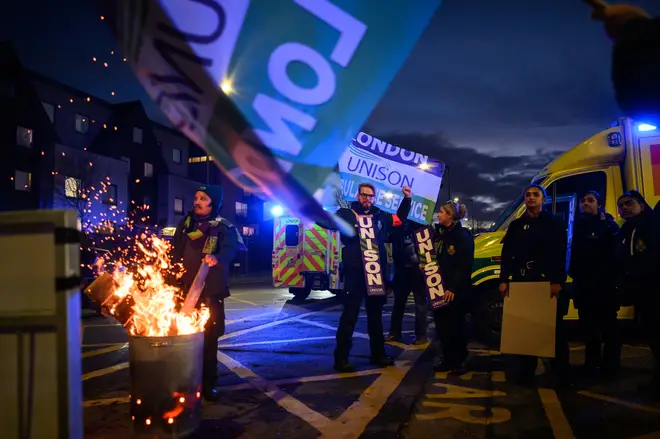
Clive Bull 1am - 4am
10 January 2023, 18:44 | Updated: 10 January 2023, 18:59

Former Labour leader Neil Kinnock has slammed government plans to restrict workers' rights to go on strike as "poisonous" and "highly objectionable".
Speaking on Tonight with Andrew Marr after the bill was published on Tuesday, Lord Kinnock condemned the new legislation and questioned whether it would ever get past legal challenges.
He said: "It's highly objectionable, indeed, in a democracy, it's poisonous in the absence of further safeguards, but I don't think it's practical anyway…
"They've got to get it through the House of Lords, certainly the House of Commons too because they will be Conservative MPs that will have doubts about this."
Lord Kinnock, who led Labour from 1983-1992, added that the courts "could be the great impediment, because even in a country, with an unwritten constitution, there are certain accumulated basic human rights that relate to the right to withdraw your labour. So, I think they're going to have great difficulties over that.

Lord Neil Kinnock on strikes
"But I don't think we should ever see full implementation. And certainly, if the penalties involved were to end up with people being dismissed for taking strike action, making themselves open to injunctions against strike action, or indeed end up in jail for contempt of court."
The new bill, introduced by business secretary Grant Shapps, would prevent some employees from being able to go on strike without fear of losing their jobs.
The proposed law would mean areas including the NHS, education, fire and rescue, border security and nuclear decommissioning would have to introduce minimum levels of service during strikes to provide a ‘safety net’ to the public.
Employers would have to set out the workforce they need, preventing some employees from being able to strike with protection from unfair dismissal.
The plans have been criticised as an ‘attack on human rights’.If made law, some union workers would be required to continue working during a strike.

Read more: Boris Johnson erased from space launch pic posted on Grant Shapps' Twitter
Mr Shapps told the Commons the Government "absolutely believes in the right to strike" but that it is "duty bound" to protect the lives and livelihoods of people in the UK.He thanked the Royal College of Nursing for working with health officials to ensure "safe levels of cover" during their strike, adding they showed they could protest in a "reasonable and mature way".
The planned law has come in for criticism by unions and the current leadership of the Labour party.

TUC boss Paul Nowak said the law would simply serve to "prolong disputes and poison industrial relations - leading to more frequent strikes".
"This legislation would mean that when workers democratically vote to strike, they can be forced to work and sacked if they don't comply," he added.
"That's undemocratic, unworkable, and almost certainly illegal."
Labour's deputy leader Angela Rayner weighed in, calling the bill "stupid".
She added: "There is no common sense about this at all. He says he recognises pressure faced by key workers, but he knows the NHS cannot find the nurses they need to work on the ward, he knows the trains don't run even on non-strike days such is their shortage of staff.
"So, how can he seriously think that sacking thousands of key workers won't just plunge our public services further into crisis?"